Tips and Tricks for Teaching Handwashing with Kids
Affiliate and Referral links are used below to promote products I love and recommend. I receive a commission on any purchases made through these links. Please see my disclosure policy for more details. As an Amazon Associate, I earn from qualifying purchases.
In this month's Functional Skills for Kids series, we are looking at all aspects of personal hygiene. Hygiene skills can be difficult for many children to master because of sensory processing, fine motor delays, or cognitive delays. Today I want to share some tips and tricks for teaching handwashing with kids.
There are also some FREE handwashing sequence cards for you to download at the end of this post. Keep scrolling to find those below.
Skills Needed for Handwashing
There are many skills you need to complete handwashing. Let's break down hand washing step by step so we can see what skills are needed.
- Ability to recognize when hands are dirty and need washing – Sensory processing and cognitive skills
- Walk to the sink (needs to be able to reach the sink, including handles for water)
- Turn on the water for hand washing – shoulder and finger strength, visual motor skills
- Get hands wet – sensory processing
- Pump soap into hands – bilateral coordination and crossing midline skills
- Scrub hands with soap – bilateral coordination skills
- Rinse hands in water – sensory processing, wrist, and hand/finger manipulation
- Turn off water – shoulder and finger strength, visual motor skills
- Dry hands – Hand grasp, finger strength, sensory processing
Some ways some children could be struggling with handwashing are:
- Trouble understanding more than 1-step directions (unable to remember what to do after the first 1-2 parts of the task)
- Difficulties with bilateral coordination skills (using both hands together to pump the soap or scrub/dry hands).
- Decrease tone or shoulder/hand strength (needed to grasp the sink handles, soap, towels, etc)
- Difficulty transferring skills learned from home to other environments
- Sensory processing difficulties (water temperature, texture of the towel, smell of the soap and/or bathroom)
These are just a few, there could be many other reasons your child is having difficulty with hand washing. Let's look at some ways to help address these problems.
Tips for Teaching Handwashing to Kids
Oftentimes, children with special needs have problems transferring a skill they have mastered from one setting to another. This is why they may be able to do something at home, but not at school. It's important to practice hand washing in all environments so that they are able to transfer the skill. Try to keep as much the same as you can in an environment so they recognize what needs to be done.
Some children may not recognize when they need to wash their hands, so it's important to set up some social stories addressing this. You can easily make up a little story and ask your child to tell you when they would need to wash their hands in the story. Give examples of daily tasks, while out and about etc. You could also set up some pictures of different activities and talk about when it would be important to wash hands.
A child should wash their hands:
- Before eating
- After using the restroom
- After sneezing (especially if they use their hands to cover their mouth) or blowing their nose
- Before preparing food or after touching raw meats
- After coming in from outside
- Whenever their hands are dirty from an activity
You could also use a video to model how to wash their hands or hand-washing songs to help them remember the steps for hand washing.
Here are some great ideas in this article “5 Ways to Teach an Older Child with Special Needs About Hygiene.“
In order to decrease the number of verbal directions, using a visual schedule or visual cards for hand washing can be helpful. They are also great to use as visual sequence reminders for the steps or items needed in order to wash hands.
Keep scrolling to find a free set of handwashing visual cards I created for you.
You can make your own by taking pictures of all the steps in your own bathroom or classroom so that the pictures match exactly where the child will be washing their hands.
Adaptations for Hand Washing Success
If a child has some physical limitations that prevent them from being independent with hand washing, it's important to figure out ways to adapt to the environment.
Some things could include:
- Step stools
- Handle extensions
- Automatic soap dispenser
- Lowered towel for easier reaching
- Hand dryer instead of towels (remember if there are sensory concerns, you may want to address the noise with this)
- Lowered sink or wash basin
- Lowered water temperature if your child has sensory issues with the water temp OR has trouble judging how warm or cold to set the water in the sink
Visual Cue Cards for Teaching Handwashing
I created some visual cue cards for handwashing that you can print off and use in your bathroom or school restrooms to help children remember all the steps for handwashing.
To get your copy, just subscribe to receive my weekly newsletter filled with child development tips, tools, and strategies. You'll get an email with a link to download the visual cue cards after entering your email address and clicking the button below.
If you are a returning subscriber, you are NOT subscribing again. By entering your email below, it lets my email provider know which download to send to your email inbox. You won't receive duplicate emails from me.
This month we are all talking about different aspects of personal hygiene and kids! Check out all the posts below.
Task Analysis – Independent Bathing in Children | Your Therapy Source
Tips and Tricks for Teaching Hand Washing with Kids | Growing Hands-On Kids
I can brush my teeth! Tips for Tooth Brushing and Oral Care! | Your Kids OT
Screen-Free Quiet Time When Daytime Naps Are History | Kids Play Space
Tips to Help Kids Learn How to Blow Their Nose | Sugar Aunts
Tips to Help Kids Who Hate Haircuts | Mama OT
Sensory Friendly Tips for Kids Who Have Trouble Sleeping | The Inspired Treehouse
Your Child With Special Needs: How to Conquer Showering Independently | Miss Jaime OT
Adolescent Hygiene Challenges | Therapy Fun Zone
You May Also Like:

Heather Greutman, COTA
Heather Greutman is a Certified Occupational Therapy Assistant with experience in school-based OT services for preschool through high school. She uses her background to share child development tips, tools, and strategies for parents, educators, and therapists. She is the author of many ebooks including The Basics of Fine Motor Skills, and Basics of Pre-Writing Skills, and co-author of Sensory Processing Explained: A Handbook for Parents and Educators.
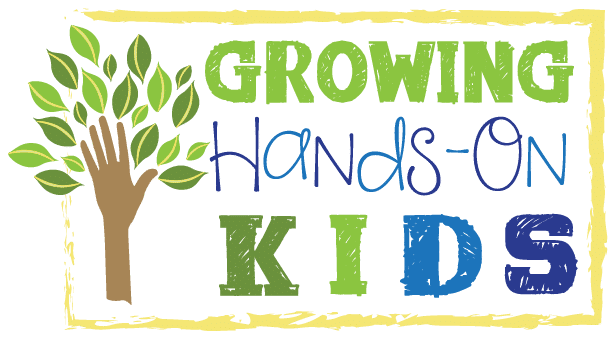
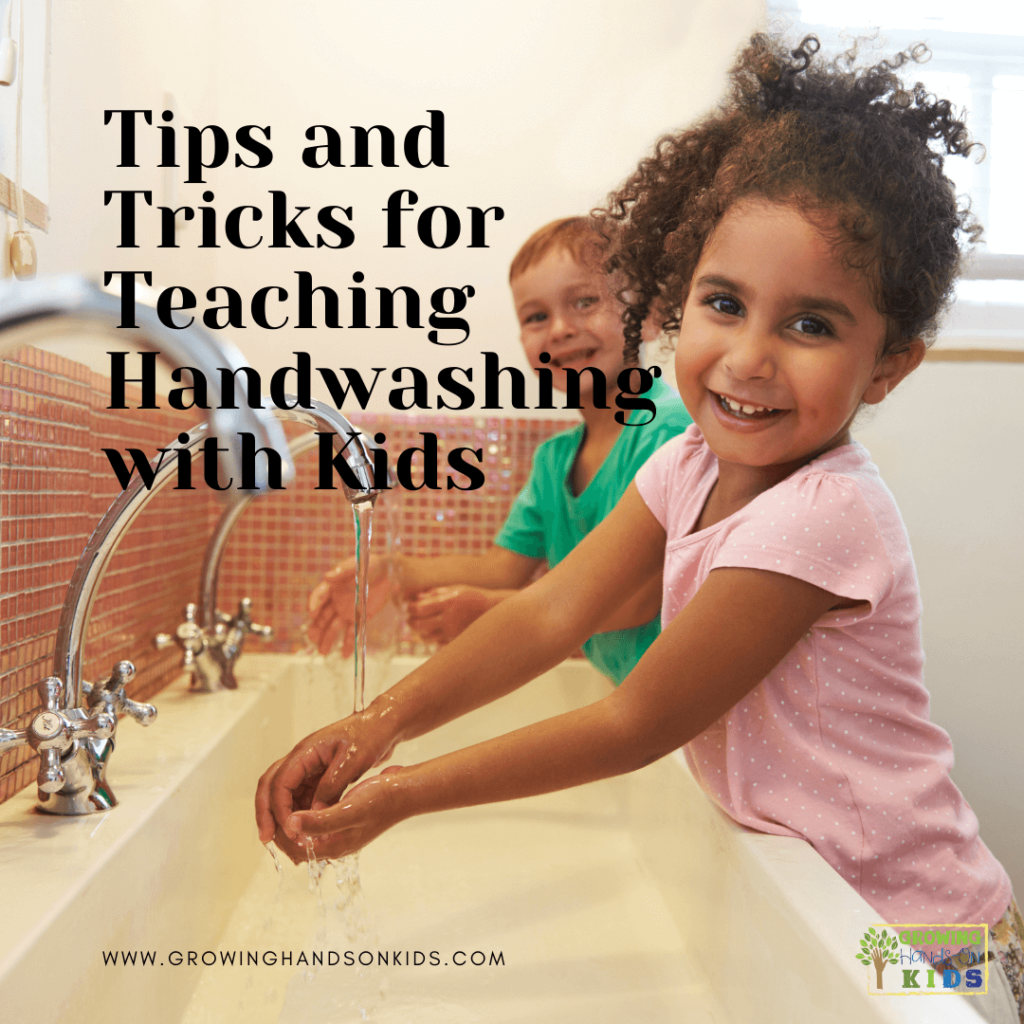
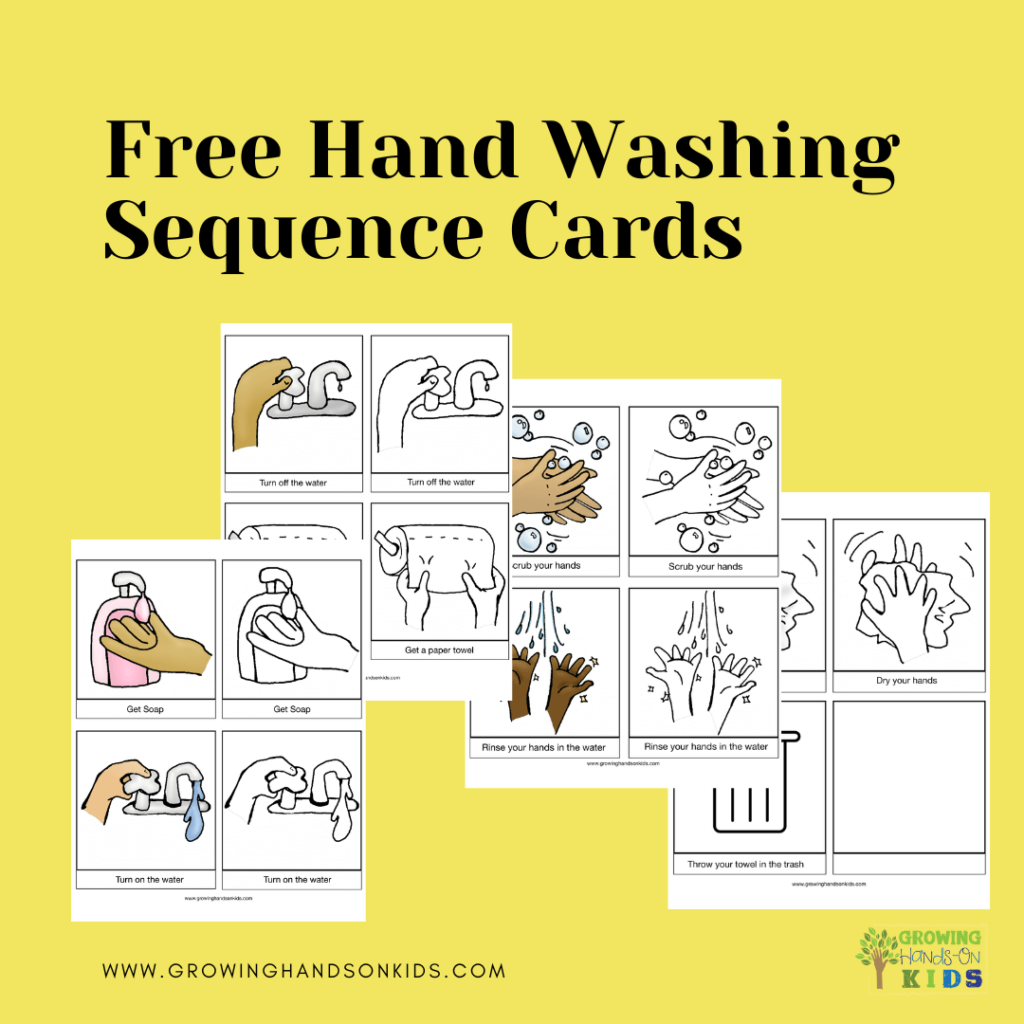
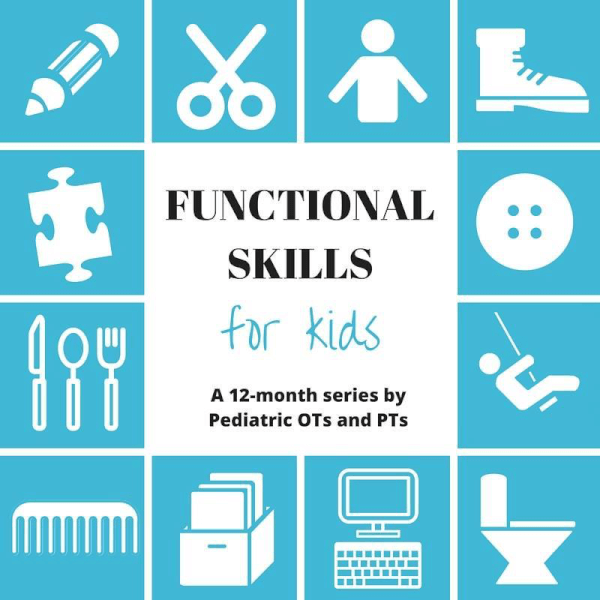
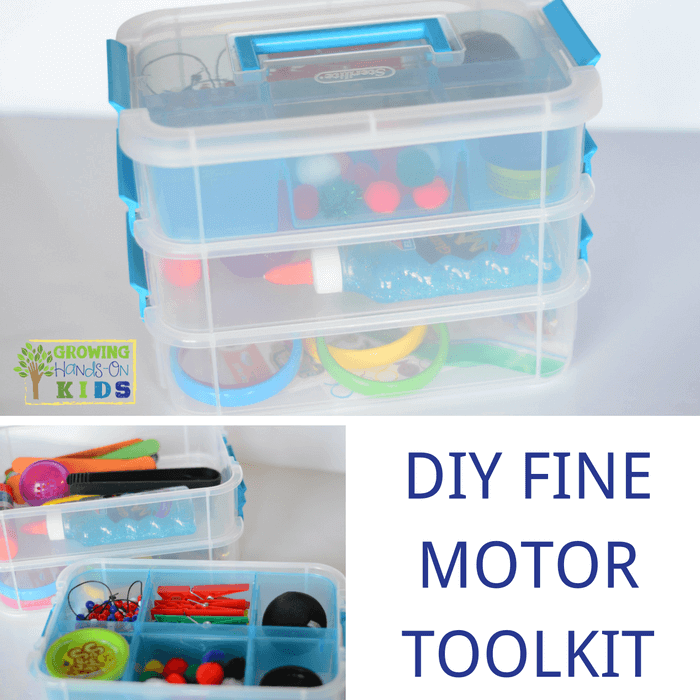
I love the adaptations that you included. Handle extensions – I never thought of that! I also love the tip of using social stories to help kids understand when to wash. Great tip!
Great tips! This time of year it seems like the kids pass colds so easily! I love the video for teaching.
So many great tips for adapting and teaching hand washing! Thanks for the ideas. Awesome to have a video to use too!
Great post, and thanks for including the handwashing video/song, I love learning new handwashing songs and tricks for kids!
A wonderful post Heather! Thank you! what a great resource!
Excellent suggestion about practicing handwashing in all environments. Sinks can be so different from location to location – different faucets, different heights, different soap dispensers, different hand drying equipment which all require different motor plans!
Sometimes we take simple hygiene tasks for granted as being quite complicated for children. I’m not sure when we stop reminding them to wash their hands at certain times and to do it properly (rather than just wetting their hands). Thanks for sharing such a comprehensive post.